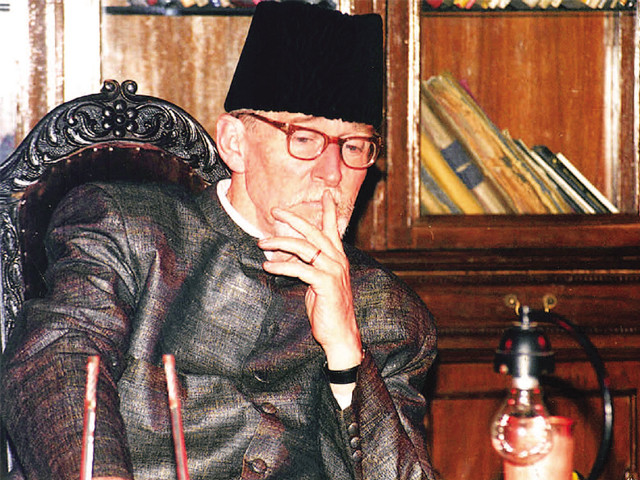Maulana Abdul Kalam Azad: A single man
“These two countries [India and Pakistan] will now focus on the military and society will not develop,” said Azad.

The man who uttered these words was as free as his name suggests. An opponent of the partition of united India, people living on either side of the Indo-Pak border both adore him and criticise his views. Not only did he criticise partition, he went on to condemn all those who played a role in the historic events of August 1947.
He questioned whether Jinnah could actually be a Muslim leader, citing his westernised lifestyle. He ridiculed Gandhi’s ideals of non-violence. He opposed Nehru’s biased attitude towards Indian Muslims and denounced his relationship with Lady Mountbatten. Above all, he heaped criticism on Vallabhai Patel, whom he considered the prime architect of Partition.
Watching the play “Maulana Azad” in Delhi last month not only introduced me to Maulana Abdul Kalam Azad’s philosophy, but also gave me the opportunity to understand his vision. Written and directed by M Sayeed Alam, “Maulana Azad” was a solo performance by renowned Indian actor Tom Alter, who is known to audiences as the green-eyed gora who speaks impeccable Urdu and plays most of the ‘foreigner’ roles in Indian TV dramas. “Maulana Azad” is a two-and-a-half hour long monologue and Alter carries its stupendous weight effortlessly. Making excellent use of props and displaying superb tonality, Alter animates the history of the subcontinent brilliantly, leaving the audience spellbound.
Throughout the play, Maulana Azad dictates notes to his friend and secretary, Humayun Kabir. The book that is being drafted is Azad’s autobiography, India Wins Freedom. The agreement between Humayun and Azad binds Azad to speak only in Urdu. This makes the play a treat to the ears: the audience gets to hear impeccable Urdu sprinkled with strains of Arabic and Persian. When Azad drifts away from political discussion to an entire gamut of non-political affairs ranging from white jasmine tea to his love for his wife, from music to the holy city of Mecca, and from cigarettes to the jailer Cheeta Khan, the play becomes doubly amusing.
Presenting a balanced version of history, the script allows the audience to glimpse a clear picture of Azad’s multi-dimensional personality, including his sense of humour, the poet within, his ego and his uniquely balanced commentary on the political events and personalities of his times. The audience is also introduced to various political dilemmas the leaders of those times had to face.
During the play, Azad criticises Jinnah for using religion for political ends, but this is balanced by his mentioning that Jinnah was left with no other choice but to do so - and that it was actually the top tier of Congress that transformed Jinnah, a champion of Hindu-Muslim unity, into Quaid-e-Azam, a leader who considers nothing but partition to be the solution for the Muslims of India. Azad also confesses to having made the biggest mistake in his life by choosing Nehru as his successor as the President of Congress. But then he quickly adds that Nehru would also agree with that statement. He appreciates Gandhi for being principled but expresses his extreme disappointment on his stance on partition and how the Vallabhai Patel-Jawaharlal Nehru-Lord Mountbatten trio influenced his political decision-making.
His basic argument against partition is that it would be a major loss to Muslims on both sides. On the Indian side, Muslims would lose their majority and on Pakistan’s side, the Muslim population would not be able to compete with India nor would it be able to solve the issues of Indian Muslims. He believed that partition would give birth to two states that would always be in confrontation with each other.
The real Maulana Azad’s views earned him a contentious status in both India and Pakistan. Many Pakistanis consider his ideas of secularism and nationalism to be against Islam. In India, he is also criticised by many for not doing enough to prevent partition. But after watching Alter’s captivating performance on stage, you don’t really care about how politically incorrect or offensive Maulana Azad must have been at his time. You just wish you could’ve met him, even just once.
Published in The Express Tribune, Sunday Magazine, February 20th, 2011.



















COMMENTS
Comments are moderated and generally will be posted if they are on-topic and not abusive.
For more information, please see our Comments FAQ